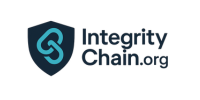United States: Whistleblower Laws with Teeth - SEC, IRS & False Claims Act

The United States has arguably the most advanced and rewarding whistleblower protection ecosystem in the world. Through robust legislation, such as the False Claims Act, the Dodd-Frank Act, and the IRS Whistleblower Program, whistleblowers not only receive legal protection but are also financially incentivized to expose fraud and corruption. This post explores these laws and features landmark case studies of whistleblowers who were protected and handsomely rewarded.
The Legal Framework
False Claims Act (FCA)
- Enacted during the Civil War era, the FCA allows private individuals to file lawsuits on behalf of the U.S. government against companies defrauding federal programs.
- Qui tam provision enables whistleblowers (known as "relators") to receive 15–30% of the government’s recovery.
Dodd-Frank Wall Street Reform and Consumer Protection Act (2010)
- Established the SEC Whistleblower Program, which rewards whistleblowers whose tips lead to enforcement actions exceeding $1 million.
- Protections include confidentiality and protection against retaliation.
IRS Whistleblower Program
- Offers awards of 15–30% of collected proceeds from tax fraud or underpayment tips.
Landmark Case Study: Bradley Birkenfeld and UBS
Background:
Bradley Birkenfeld, a former banker at UBS, blew the whistle on how the Swiss banking giant helped U.S. clients evade taxes by hiding assets offshore.
Outcome:
- Birkenfeld served 40 months in prison for his own role in the scheme but was later awarded $104 million by the IRS in 2012.
- His information led to a $780 million settlement with UBS and a seismic shift in global banking transparency.
Impact:
- The case triggered the end of Swiss banking secrecy for Americans.
- Reinforced the importance of internal reporting mechanisms and whistleblower incentives.
Other Major Case: Cheryl Eckard and GlaxoSmithKline
Background:
Cheryl Eckard, a quality control manager at GlaxoSmithKline, reported manufacturing violations at a plant in Puerto Rico, including cross-contamination of drugs and improper cleaning procedures.
Legal Route:
Filed under the False Claims Act.
Outcome:
- GSK paid $750 million in penalties.
- Eckard received a $96 million reward, the largest single individual whistleblower payout at that time.
Significance:
- Underscored the role of pharmaceutical whistleblowers in protecting public health.
- Cemented the FCA as a powerful legal tool in healthcare fraud.
Why the U.S. Model Works
- Anonymity and Protection: Whistleblowers can report anonymously through the SEC and still receive rewards.
- Financial Incentives: The possibility of receiving life-changing sums motivates insiders to come forward.
- Legal Representation: Lawyers often take whistleblower cases on contingency, making it accessible even to lower-income individuals.
- Dedicated Offices: The SEC, IRS, and DOJ all have whistleblower offices to handle tips systematically.
Challenges That Remain
- Retaliation Still Happens: Despite protections, some whistleblowers face career ruin or harassment.
- Delay in Payouts: Processing claims and issuing rewards can take years.
- Limited Corporate Culture Change: Many companies still lack internal systems that genuinely support ethical disclosures.
Conclusion
The U.S. leads globally in whistleblower rights and incentives. Through laws like the False Claims Act and programs by the SEC and IRS, it has built a system where truth-tellers can be heroes—and millionaires. Yet, the road is still risky and long. Continued reform and cultural change are key to ensuring whistleblowers are not just protected, but respected.



